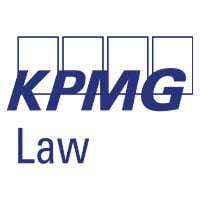

|




Team size: 50
What are the most significant cases or transactions that your legal team has recently been involved in?
The legal team has been involved in several cases and transactions in the past few years. The divestment of ITP Aero, AirTanker Holdings and Bergen Engines is worth mentioning, raising proceeds of around £2bn.
In the wake of Covid-19, we have advised the company on rights issues. Simultaneously, we have led negotiations with multiple airlines in financial distress to administrate and restructure the impact of the health crisis. The legal team has proved to be a great asset to the business in times of crisis. We have also provided directions on the Ukraine-Russia war and the consequent macro-economic issues. Furthermore, we have participated in setting up Yocova — a data exchange and collaboration platform for the aviation sector.
We have advised Qantas concerning the project Sunrise — the purchase of 12 Airbus A350-1000s to support its ambitions to operate the world’s longest commercial non-stop flight. The team has taken an active role in the Team Tempest programme, working closely with the Royal Air Force, BAE Systems, Leonardo and MBDA to develop future combat air power. Finally, we have been very active on environmental and sustainability issues, leading the transition to net zero carbon emissions.
How has the increasing consciousness of climate change and sustainability affected your company and the team’s priorities?
As part of the UN Race to Zero and UN Business Ambition for 1.5°C campaigns, we have pledged to reduce emissions to zero by 2030 and reach zero by 2050. Our legal team is at the heart of this mission. We proactively monitor critical legal developments and horizon scanning, ensuring risks and opportunities are captured in our risk management system and advising on key transactions and projects for zero carbon technologies.
The unusual business environment created by the pandemic has been swiftly followed by the Ukraine crisis, and attendant supply chain costs rising and increasing inflation. Are you now putting more emphasis on preparing for the unforeseen and, if so, what does this entail?
Our teams and systems are robust and work well in dealing with a crisis, but we need to do more proactive work to enhance our business resilience to future shocks.
This can be done by ensuring contingency plans for our business operations and facilities. Enhancing our risk management teams and systems is essential to guarantee that risks are captured in registers and reported and considered in our decision-making process. Reviewing and revising our commercial policies and standard contract position is crucial to determine how risk is allocated between all the stakeholders and us.
| Rolls-Royce Brazil
| Rolls-Royce Brazil
Legal director Ivan Dilly leads the legal team at Rolls-Royce Brazil, which currently is comprised of a structure of three lawyers, plus one project executive and one analyst supporting the...
| Rolls-Royce
‘We’re not the “Department of No”; we’re not the “Deal Prevention Unit”; and we don’t sit in our ivory tower with the big book of law,’ says Rolls-Royce GC Mark...